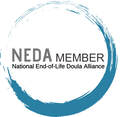|
Welcome to another enlightening edition of "Know Your Funeral Options." In today's discussion, we will delve into the intriguing realm of Anatomical Donation. While this option bears a shadowy historical past, it is essential to recognize that times have evolved, and Anatomical Donation has undergone transformations for the better. Despite occasional reports of mishandling or theft of body parts, it's crucial not to let isolated incidents overshadow the significance and integrity of this noble act.
Anatomical Donation, at its core, involves the selfless act of individuals choosing to donate their bodies for anatomical, research, or experimental purposes. Contrary to its historical misuse, contemporary practices are governed by stringent laws and ethical considerations, ensuring that the utmost respect is accorded to the donors. It's important to note that instances of malfeasance in Anatomical Donation are infrequent and shouldn't dissuade potential donors. So, what precisely is Anatomical Donation all about? Essentially, it allows individuals to contribute to medical studies, research endeavors, and experimental initiatives. Bodies donated for anatomical purposes serve as invaluable resources for studies in human anatomy, enabling medical professionals and researchers to deepen their understanding of the intricacies of the human body. Surgeons may use these donations to refine their techniques, ensuring safer and more effective procedures. Moreover, automakers may utilize donated bodies to test and enhance safety features such as new seat belt systems. Crucially, Anatomical Donation is a voluntary choice made by individuals during their lifetime or by their families after their passing. Consent plays a pivotal role, and there are robust legal frameworks in place to regulate the respectful and ethical use of donated bodies. Despite the dark chapters in its history, Anatomical Donation now stands as a beacon of altruism and contribution to the advancement of medical science. For those considering Anatomical Donation in the Ann Arbor area, the University of Michigan (UFM) emerges as a leading institution in this regard. However, it's important to note that not every body is eligible for acceptance into the program. Certain health conditions, such as HIV or hepatitis, and extremes in weight may preclude a body from being accepted. Prospective donors are encouraged to proactively engage with UFM, discussing their interests in Anatomical Donation and seeking guidance on eligibility criteria. To facilitate a comprehensive understanding of the Anatomical Donation process at UFM, a link is provided below, connecting you to the UFM Anatomical Donation Program page. This resource outlines the step-by-step procedures involved in making such a profound and impactful contribution to medical science. Taking this step not only ensures the legacy of the donor but also serves as a testament to the selflessness that defines Anatomical Donation in its contemporary and ethical form. Link: https://medicine.umich.edu/dept/anatomical-sciences/anatomical-donations-program
0 Comments
In this post I like to discuss the 7 stages of Dementia. This disease is a complex and progressive neurological disorder that affects cognitive function, memory, and daily activities. The condition is characterized by a series of stages, each representing a different level of impairment. Understanding these stages is important for caregivers, healthcare professionals, and family members to provide the best support and care for individuals with dementia.
Normal Functioning: At this stage, an individual experiences no cognitive decline, and their memory and cognitive abilities are intact. There are no signs of dementia, and daily life functions are carried out without any significant difficulties. Age-Related Memory Decline: In this stage, individuals may start experiencing mild cognitive impairment, often associated with normal aging. Memory lapses may occur, but they do not significantly interfere with daily activities. It's essential to differentiate between age-related decline and early signs of dementia. Mild Cognitive Impairment (MCI): MCI is a transitional stage between normal aging and more severe cognitive decline. Individuals may experience noticeable memory problems, forgetfulness, and difficulties in finding the right words. However, these symptoms are not severe enough to be classified as dementia. Early-Stage Dementia (Mild Alzheimer's Disease): At this point, cognitive decline becomes more apparent. Individuals may struggle with memory loss, have difficulty concentrating, and face challenges in performing familiar tasks. They might start withdrawing from social activities and may exhibit mood swings or changes in personality. Moderate-Stage Dementia (Moderate Alzheimer's Disease): Moderate dementia is characterized by a significant decline in cognitive function. Memory loss becomes more pronounced, and individuals may struggle with recognizing familiar faces, places, and objects. Daily activities, such as dressing and eating, require increased assistance. Behavioral changes, such as wandering or agitation, may also emerge. Severe-Stage Dementia (Severe Alzheimer's Disease): In the severe stage, individuals experience a profound loss of cognitive function. Communication becomes extremely challenging, and they may lose the ability to speak coherently. Mobility is severely impaired, and individuals often require assistance with basic activities of daily living. Behavioral symptoms can intensify, and there is a high dependence on caregivers. End-Stage Dementia (Late-Stage Alzheimer's Disease): The final stage is marked by a profound loss of physical and cognitive function. Individuals may lose the ability to recognize family members, experience severe communication difficulties, and become bedridden. The body's overall function declines, and individuals are highly dependent on others for all aspects of care. It is important to note that while these stages provide a general framework, the progression of dementia can vary from person to person. Additionally, other forms of dementia, such as vascular dementia or Lewy body dementia, may exhibit slightly different patterns of progression. Caregivers and healthcare professionals should tailor their approach based on the unique needs and experiences of each individual with dementia. |
AuthorRobin Lehman Archives
April 2024
Categories |
 RSS Feed
RSS Feed


